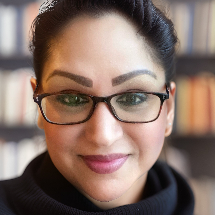Key Points
- Women have been part of sobriety efforts for decades.
- The first women in AA paved the way for other women around the world.
Sober women have contributed to the recovery movement in America since it first began. Their early contributions helped make the recovery space more accessible and acceptable for women.
Women also advocated for gender-specific treatment, support groups, and 12-Step meetings. Their work is still felt around the world today. Some rehabs cater to just women, too.
Women in Recovery Who Made a Difference
Each and every woman in recovery makes a difference. Women who challenged the stigma of addiction and recovery early on paved the way for continued advocacy, fresh recovery programs, and support.
Betty Ford (1918-2011)
Former First Lady Betty Ford left a large mark on the addiction treatment scene and the stigma surrounding it. After a battle with opioid and alcohol addictions, an intervention, and treatment, Betty realized she was in a unique position to make a difference.
First Lady Betty Ford helped create her own treatment center, the Betty Ford Center, designed to help both men and women find recovery. Betty Ford Centers have since expanded across America.
The Betty Ford organization merged with the Hazelden Foundation in 2014. Hazelden pioneered the Minnesota-model of treatment1, which focuses on 12-Step treatment. Their merge broadened the impact of Betty’s first decision to make her addiction known and use her notoriety to help others.
Jean Kirkpatrick, Ph.D (1923-2000)
Jean Kirkpatrick, sociologist, formed Women for Sobriety in 1975. She attended 12-Step AA (Alcoholics Anonymous) meetings throughout her recovery process. After finding a need for women-focused treatment, she created a solution herself: Women for Sobriety2.
Women for Sobriety groups meet across America now. Dr. Kirckpatrisck’s history of repeated relapses, research, and life-long determination brought a gift to the world many women continue to enjoy.
Elizabeth Taylor (1932-2011)
American actress Elizabeth Taylor lived a lavish, seemingly ideal life. But after a spinal surgery and other health conditions, she became addicted to prescription pain pills3. She also struggled with alcohol addiction.
Elizabeth Taylor made the decision to publicly announce her admittance to Betty Ford Center, Betty Ford’s first treatment center. By doing so, Elizabeth gave permission for other celebrities to do the same. She also normalized treatment for women—even pretty, successful ones like her.
As a Hollywood Icon, Elizabeth Taylor embodied who many women wished they could be. So seeing her go to rehab, openly admit it, and then go again after a relapse may have been more impactful than she’ll ever realize.
Nora Volkow (1956-Present)
Nora Volkow, current director of the National Institute of Drug Abuse (NIDA), changed the way we see addiction. Her work in brain imagery showed that addiction isn’t a character flaw or personal failing. Rather, it’s a tangible change in the brain.
Her work contributed heavily to the disease model of addiction4. This revolutionized the old idea of addiction being something to punish. Now, for many, it’s something to treat.
Women in Alcoholics Anonymous (AA)
Alcoholics Anonymous (AA) provides a resource for Americans struggling with alcohol addiction. While it didn’t specifically exclude women, they weren’t welcomed in the same way men were. Usually, women were seen as the supportive spouse, attending just for their husbands’ sake. Or, women were villainized for their addiction.
Some of the very first women in AA decided to change that.
Florence R. (?-1943)
Florence was one of the very first members of AA5. She joined one of the pioneering groups in New York, wrote the first section written by a woman in the Big Book, and tried to start an AA group in Washington.
Though she didn’t succeed, and eventually returned to drinking, Florence made AA meetings somewhere women could go, too. Those early members became family to her—something that still happens to this day.
In Florence’s case, just showing up to meetings made her an early AA icon. Despite her sobriety not lasting, she still made AA meetings a more accepting, open place for women.
Marty Mann (1904-1980)
Marty supported the disease model of addiction, a brave move at a time when it wasn’t yet proven. She was one of the first women to bring awareness to addiction6 as something to heal, not punish. Marty fought against the stigma women in particular received: that they were promiscuous, uncontrollable, and without value. Instead, she advocated for recovery through acceptance.
Marty Mann also founded the National Council on Alcoholism and Drug Dependence. She encouraged other women to get help, and those in the LGBTQ+ community. As a gay woman, Marty Mann bridged gaps between 2 underserved communities and the help they deserved.
Dr. Ruth Fox (1896-1989)
Dr. Fox became the first medical director of The National Council on Alcoholism in 1959. She was one of the first psychoanalysts to take alcoholic patients. And she pioneered the use of Antabuse7 to treat alcohol addiction, which we still use today.
Dr. Ruth Fox also founded the American Medical Society on Alcoholism and Other Drug Dependencies.
Dr. LeClair Bissell (1928-2008)
Dr. Bissell co-founded the American Society of Addiction Medicine (ASAM)8. Like Marty Mann, she helped change the way the public saw addiction, women in recovery, and gay women. Dr. Bissell followed the 12-Steps of AA, published books on recovery,
LeClair also advocated heavily for alcoholism in professionals, specifically medical professionals.
All these women changed the way women and the world see recovery. They made healing seem like a safe option for women who were scared, embarrassed, and without hope��–but wanted out.
Those options for recovery still exist today, for men and women. And we have a lot of people to thank for that.
Find a Recovery Program Today
Much has changed from the early days of AA and recovery as a whole. While the stigma surrounding addiction hasn’t yet disappeared, these early women in recovery diminished it bit by bit.
Thanks to them and many others around the world, ethical, women-focused recovery programs exist globally. You can browse our list of women-only rehabs and see photos, reviews, insurance information, and more.
-
Anderson, D. J., McGovern, J. P., & DuPont, R. L. (1999). The origins of the Minnesota model of addiction treatment—A first person account. Journal of Addictive Diseases, 18(1), 107–114. https://doi.org/10.1300/J069v18n01_10
-
Women for sobriety. (n.d.). Women For Sobriety. Retrieved May 4, 2023, from https://womenforsobriety.org/
-
Guts and guile: Elizabeth’s road to recovery. (n.d.). Elizabeth Taylor. Retrieved May 4, 2023, from https://elizabethtaylor.com/guts-and-guile-elizabeths-road-to-recovery/
-
Abuse, N. I. on D. (--). Drug misuse and addiction. National Institute on Drug Abuse. http://nida.nih.gov/publications/drugs-brains-behavior-science-addiction/drug-misuse-addiction
-
michelle1mcc. (2011, May 13). Who was the first woman in alcoholics anonymous, and why do we care? Points: Short & Insightful Writing about the Long & Complex History of Drugs & Alcohol. https://pointshistory.com/2011/05/13/who-was-the-first-woman-in-alcoholics-anonymous-and-why-do-we-care/
-
Flynn, W. R. (2002). A biography of mrs. Marty mann: The first lady of alcoholics anonymous. American Journal of Psychiatry, 159(11), 1950-a-1951. https://doi.org/10.1176/appi.ajp.159.11.1950-a
-
Ruth fox, founder of the american society for addiction medicine. (n.d.). Retrieved May 4, 2023, from http://www.whale.to/a/ruth_fox6.html
-
Bissell, L. (1997, January 22). Reflections of an Addiction Treatment Pioneer: An Interview with LeClair Bissell, MD [Interview]. https://aaagnostica.org/wp-content/uploads/2017/01/Dr.-LeClair-Bissell-1997.pdf
Return to Resource Library
Our Promise
How Is RehabPath Different?
We believe everyone deserves access to accurate, unbiased information about mental health and addiction. That’s why we have a comprehensive set of treatment providers and don't charge for inclusion. Any center that meets our criteria can list for free. We do not and have never accepted fees for referring someone to a particular center. Providers who advertise with us must be verified by our Research Team and we clearly mark their status as advertisers.










